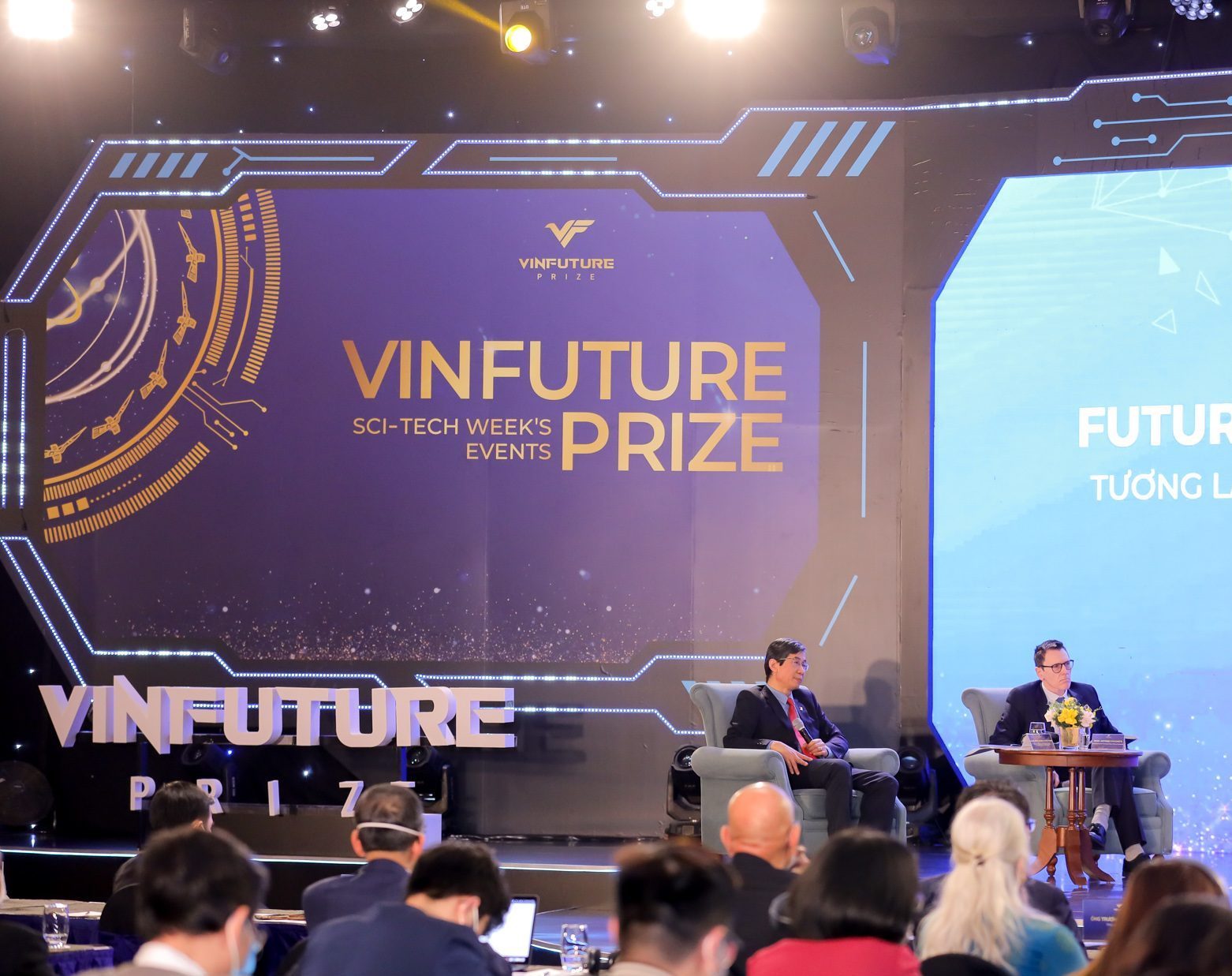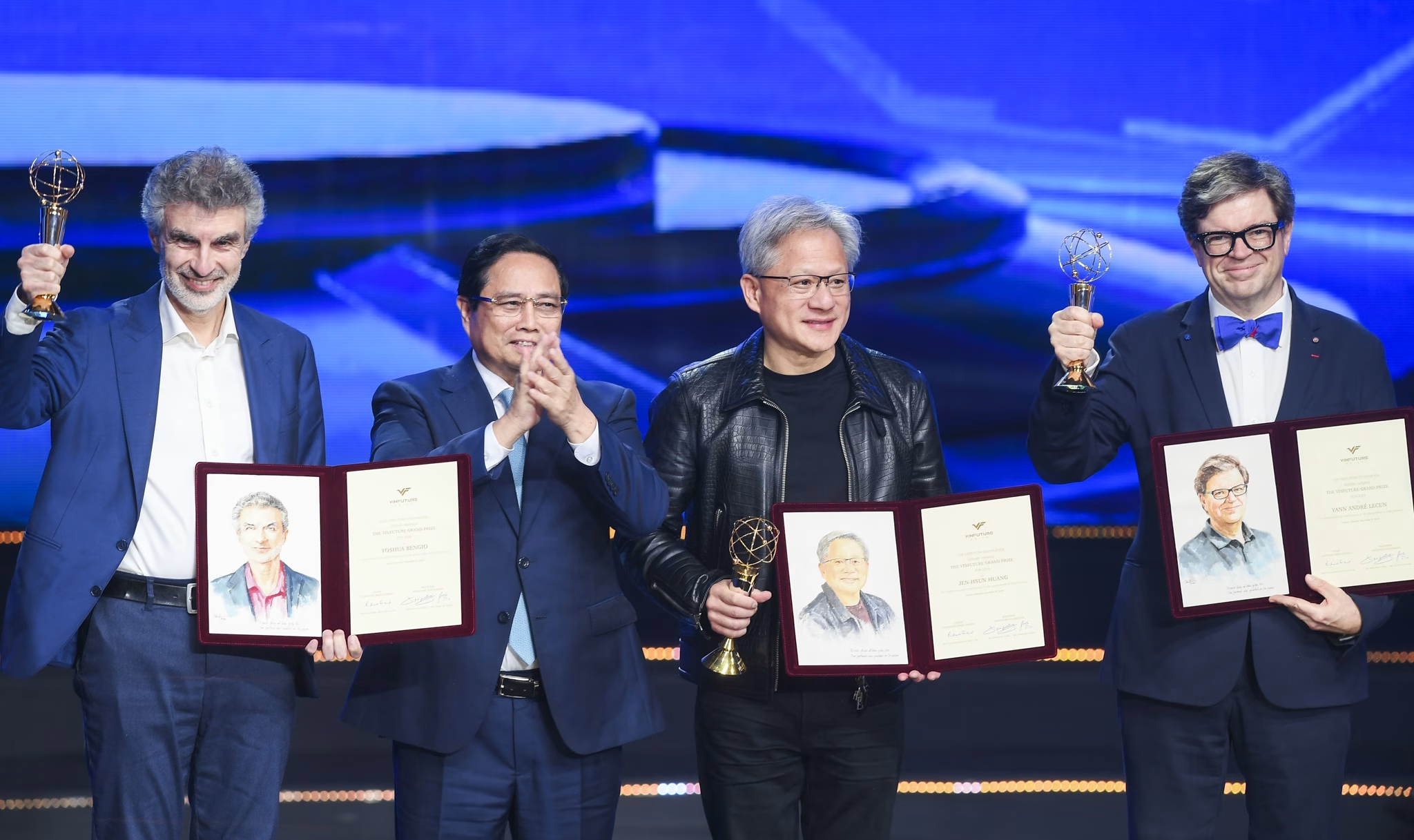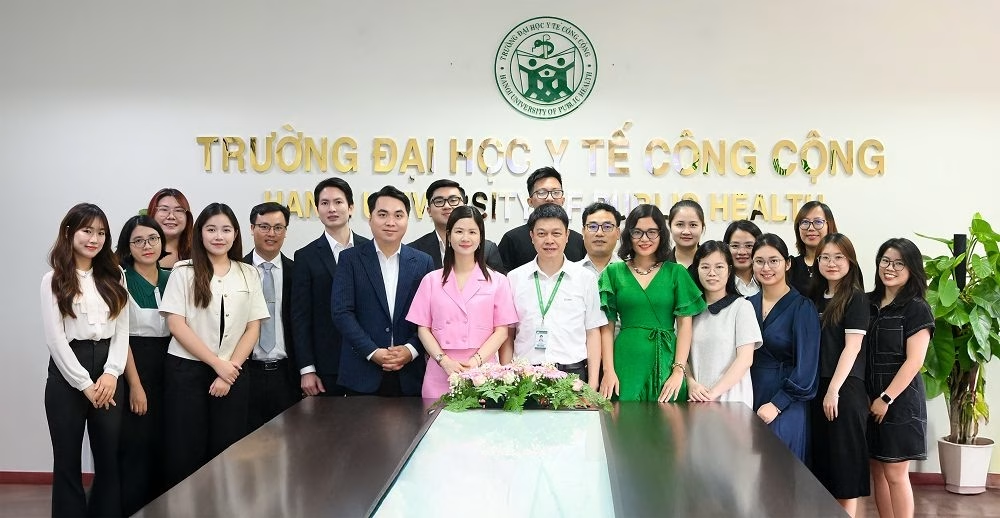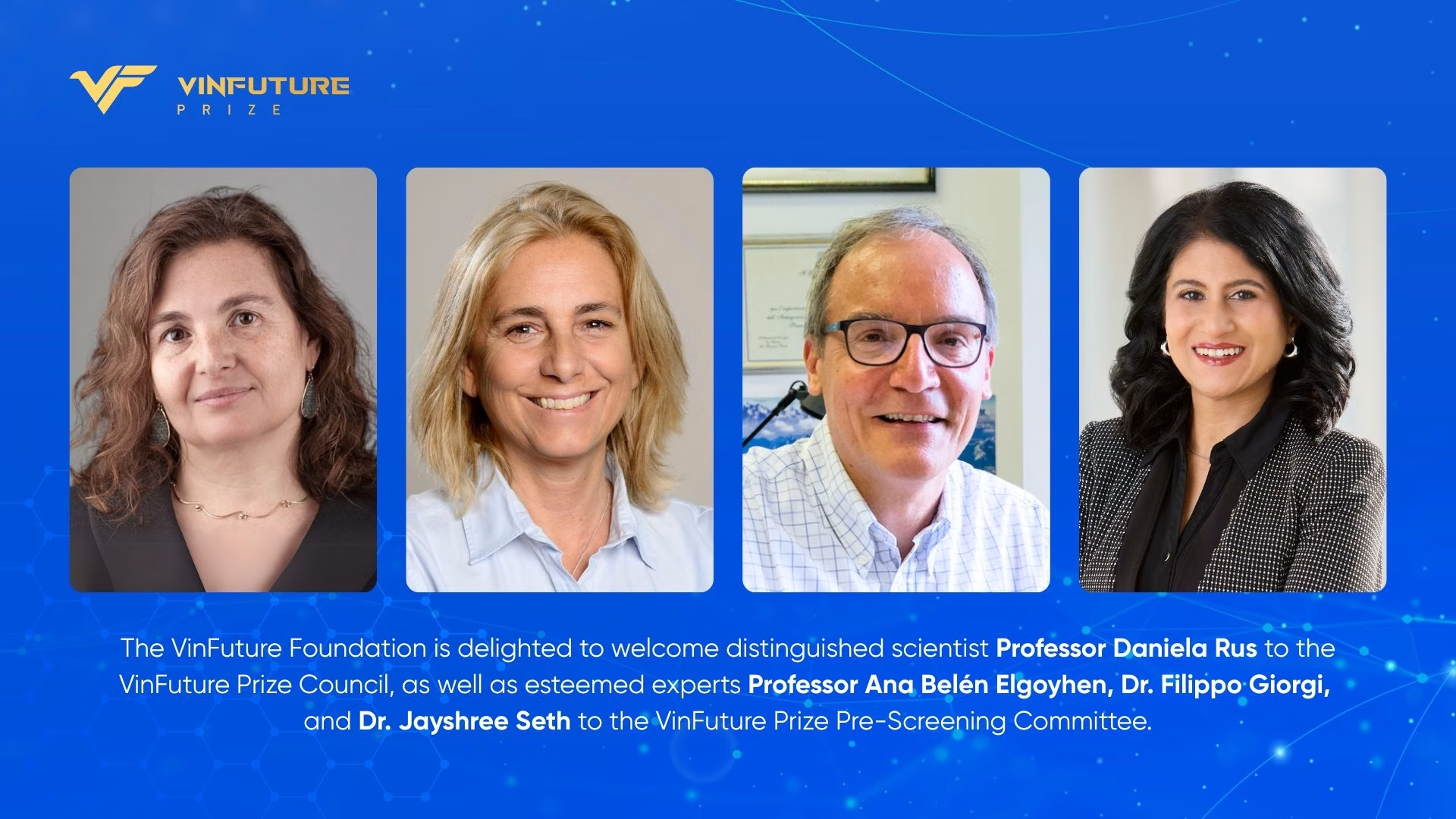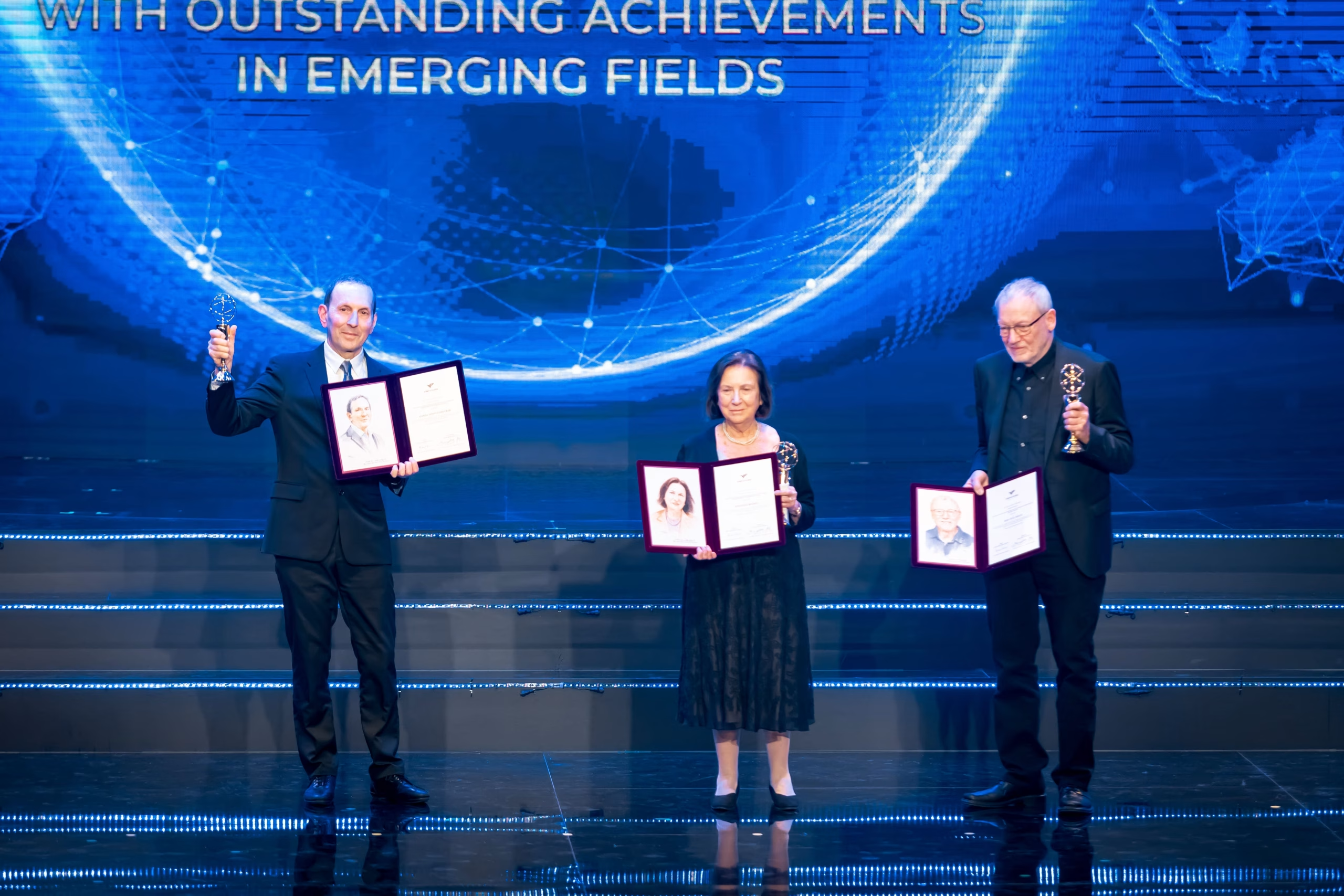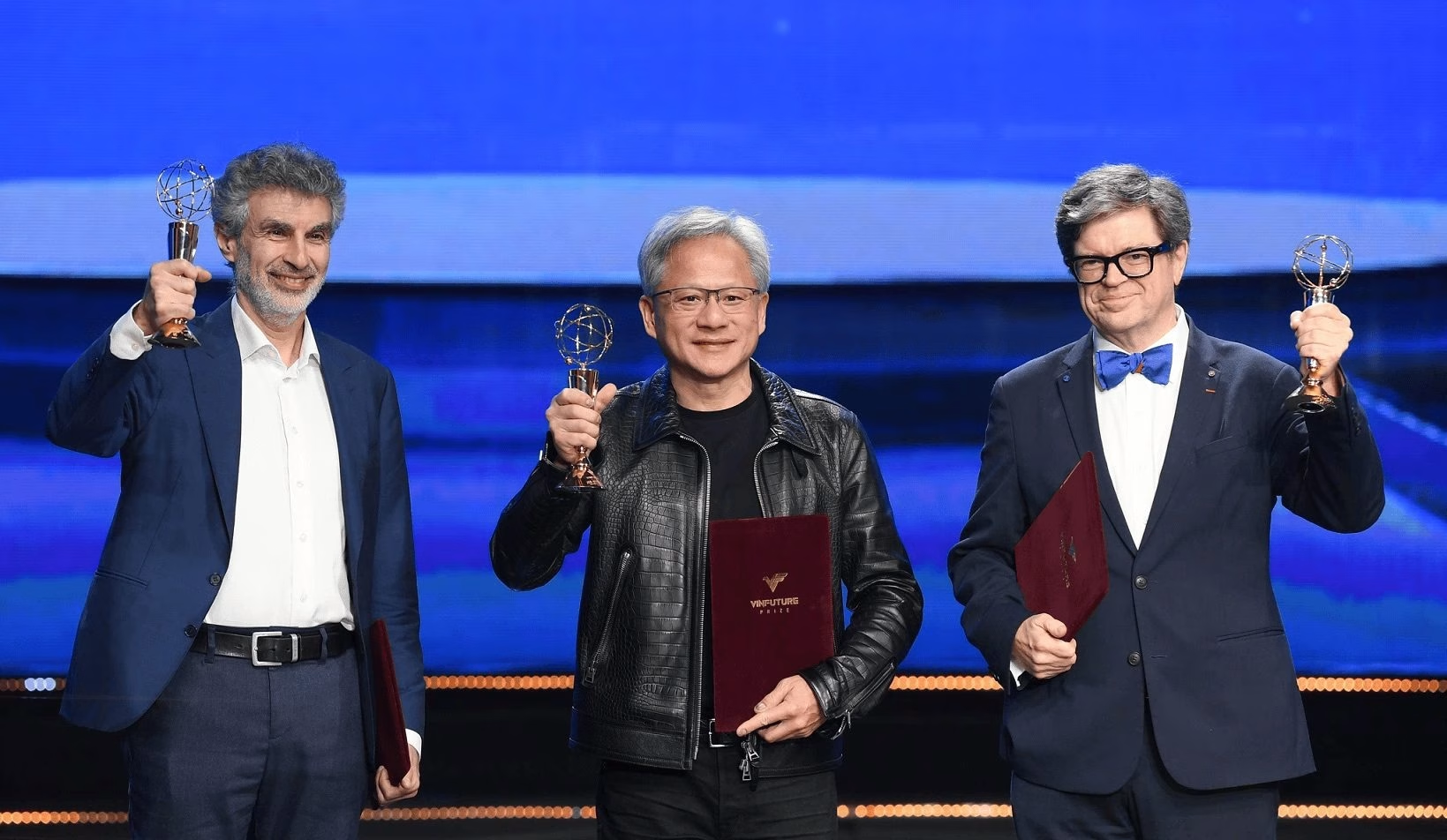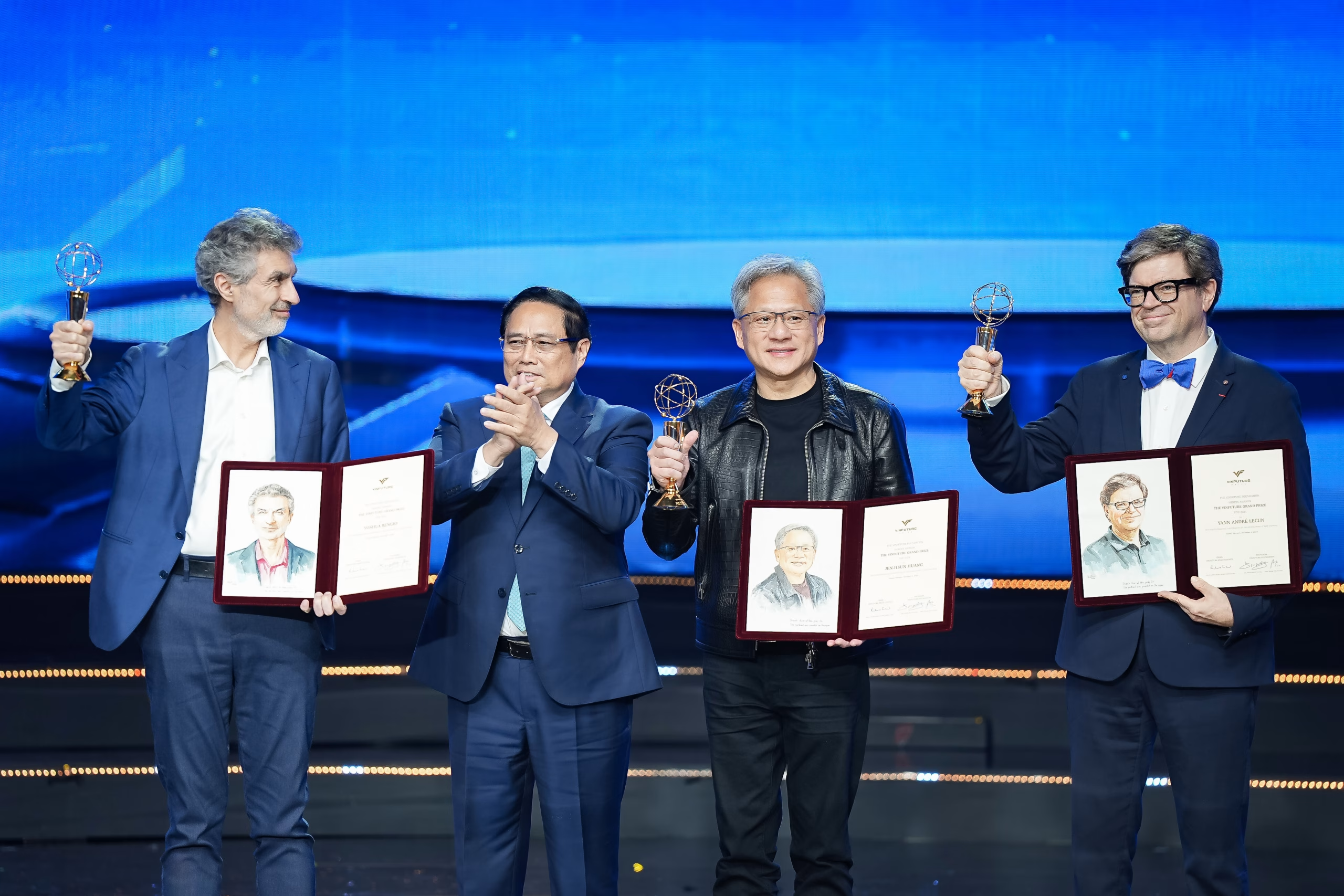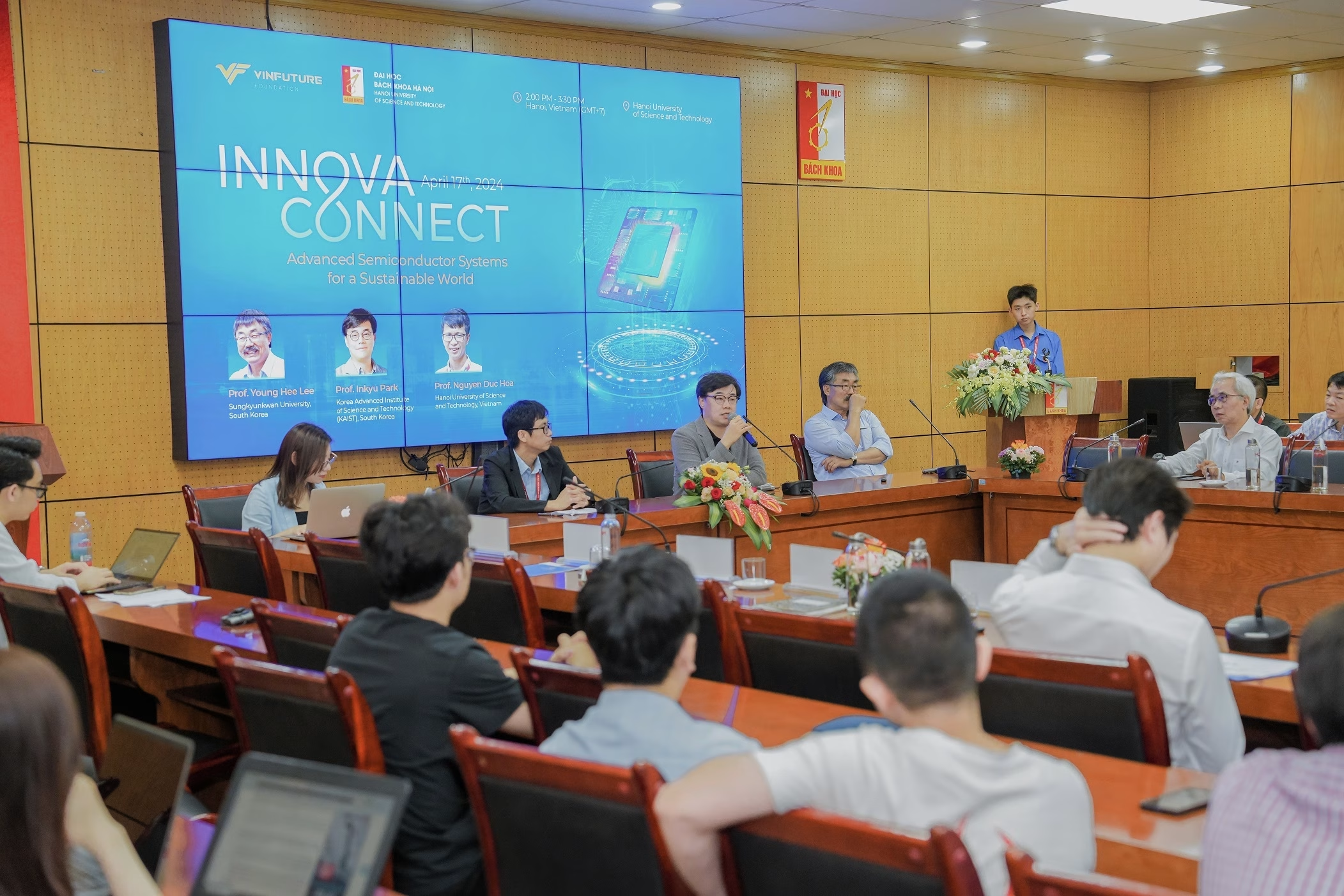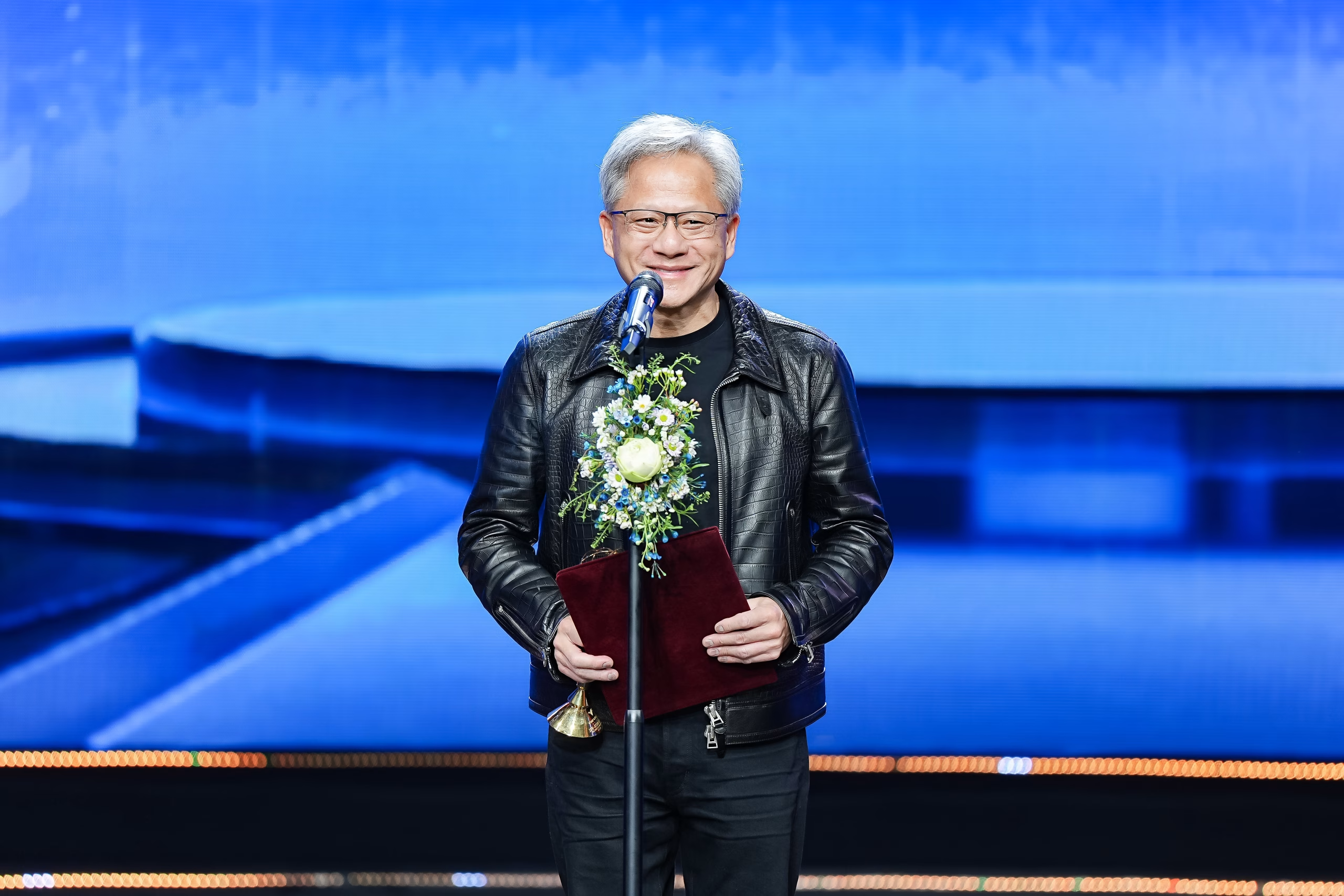The seminar was organized into three 90-minute sessions with discussions focusing on future global issues, science and technology trends, controversial fields, as well as projections of key changes in people’s lives with the increasing intervention of science and technology.
“The Future of Energy” Session – “An energy source that meets the needs of 10 billion people throughout the period of 10,000-20,000 years”
The future of energy for humanity is one of the most pressing global topics nowadays. As such, the first session of the Seminar was dedicated to a discussion of “The future of energy” with the participation of various influential scientists worldwide, such as Prof. Sir Richard Henry Friend (Cambridge University, UK – Chair of the VinFuture Prize Council), Prof. Nguyen Thuc Quyen (University of California Santa Barbara, USA – Co-Chair of the VinFuture Pre-Screening Committee), Prof. Antonio Facchetti (Northwestern University), Prof. Gérard Albert Mourou (2018 Nobel Laureate in Physics), Prof. Sir Kostya S.Novoselov (2010 Nobel Laureate in Physics)…
Joining the first session, Prof. Gérard Albert Mourou (2018 Nobel Laureate in Physics) revealed that he and his team of scientists are currently researching Thorium, a material expected to substitute Uranium in the generation of nuclear power. Prof. Mourou, a member of the VinFuture Award Council, explained Thorium’s three advantages over Uranium: its abundance in nature, reduced production of waste, and the creation of significantly shorter lived hazardous materials as compared to Uranium. “Thus this opens up a high-potential opportunity for us in the field of nuclear energy. This is an unexplored area and now we are learning to create energy from it. Such an energy source can meet the needs of 10 billion people throughout a period of 10-20,000 years,” said Prof. Mourou.
“The future of artificial intelligence” Session – “AI can definitely enable us to develop with sustainability”
The “Future of Artificial Intelligence” session was attended by many renowned global experts in the field of AI to share about the future vision, applications, and impact of AI. Dr. Bui Hai Hung – Director of VinAI Research – and Prof. Vu Ha Van – Scientific Director of VinBigdata Institute – both gave practical examples of the direction for development and the vision of the AI ”industry” in Vietnam from their own experiences. The two guest speakers emphasized this technology’s powerful impact and promising potential in Vietnam in the future.
Sharing about the future potential of AI, Dr. Bui Hai Hung affirmed: “I think not only within institutes and universities but also in the private sector, AI can enable us to develop with sustainability”.
Vietnam is also considered as one of the countries with high potential in developing AI systems. “The successful development of an AI system requires two factors: one is a clean data set, and the other is a workforce of talents with devotion. Fortunately, as a developing country, Vietnam has many powerful drives and tools for such development,” said Prof. Vu Ha Van. At the same time, Dr. Bui Hai Hung also shared: “We currently see great opportunities in creating start-up businesses, to dive in and benefit. At least for now, a very bright future is awaiting Vietnam. We need to realize such a future – where Vietnam can participate in the market not only as a beneficiary but also as a producer of AI products. With such vision, we can do it.”
“The Future of Health” Session – “We need to defend ourselves against new viruses”
The last session of the seminar, titled “The Future of Health”, was held with the participation of many outstanding figures in the field such as: Dr. Katalin Karikó – BioNTech SE (Germany); Prof. Drew Weissman – University of Pennsylvania (USA); Prof. Pieter R. Cullis – University of British Columbia (Canada), who are behind the mRNA technology of Covid-19 vaccines (Pfizer, Moderna); Prof. Dang Van Chi – Ludwig Cancer Research Institute (USA); Prof. Vu Ha Van – Yale University (USA), and more.
In addition, attending the session and giving the opening speech was Deputy Minister of Health Tran Van Thuan. He highly appreciated the achievements of the Vietnamese healthcare sector in the fight against the COVID-19 pandemic, affirming the important role of the healthcare sector in the country’s development. The Deputy Minister also congratulated VinFuture Foundation for the successful nomination, selection, and honoring of scientific works with the mission of serving humanity. This is an important moment that calls for the joint contribution of intellectuality, hard work, and unity to overcome the pandemic.
Addressing the future of global health, Prof. Drew Weissman specified that in the future there would certainly be many more outbreaks with different levels of severity. The most concerning question for medicine right now is how to create a vaccine with high universality and effectiveness against common viruses that adversely impact our health around the world
As one of the scientists behind the mRNA technology, Dr. Katalin Karikó opened up that mRNA is a technology that can be applied versatilely to various other products and vaccines. Prof. Pieter R. Cullis added: “Vaccinology is only one of many fields. Although at the moment we have various technologies such as mRNA and others, we will not stop there. Even though it’s a miracle technology, there is still a gap, the protein structure in bacteria is always present, which means we need to defend against new viruses.”
